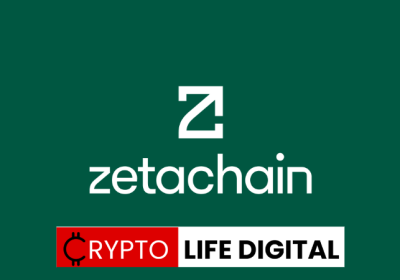The Role Of Smart Contracts In Blockchain Technology

Smart contracts are self-executing computer programs that run on blockchain technology. They were first introduced by Nick Szabo in 1994, and since then, they have been revolutionizing the way we conduct transactions and carry out business processes. Smart contracts are designed to automate the execution of a contract, removing the need for intermediaries and enhancing security, transparency, and efficiency. In this article, we will discuss the role of smart contracts in blockchain technology and how they are transforming various industries.
What are Smart Contracts?
A smart contract is a self-executing program that automatically enforces the terms of a contract. It is essentially a piece of code that lives on a blockchain network and runs when certain conditions are met. Smart contracts have a set of rules and conditions encoded into them, and they can be triggered automatically by certain events or actions. They are designed to execute a specific function or task and are immutable, meaning that once they are deployed, they cannot be altered.
Read Also: Proof of Stake vs Proof of Work: What’s the Difference?
Smart contracts can be used to automate a wide range of processes, from simple transactions to complex business processes. They can be used to manage financial transactions, track supply chain logistics, verify the authenticity of digital identities, and more.
How does Smart contracts technology work?
Smart contracts work by using blockchain technology to create a tamper-proof, decentralized system. The contract is stored on a blockchain network, which is essentially a distributed ledger that records all transactions and updates in real time. When a smart contract is executed, the transaction is verified by the network, and if the conditions of the contract are met, the contract is automatically executed.
Smart contracts are self-executing, which means that they do not require intermediaries to verify and execute transactions. This eliminates the need for intermediaries such as banks, lawyers, or brokers, reducing transaction costs and improving efficiency. Smart contracts can also be used to create new types of financial instruments, such as derivatives and options, which can be traded on a decentralized platform.
Advantages of Smart Contracts
Smart contracts have several advantages over traditional contracts, including:
- Efficiency: Smart contracts are automated, which means that they can execute transactions much faster than traditional contracts. They can also reduce the amount of paperwork and administrative work required to manage contracts.
- Transparency: Smart contracts are stored on a blockchain network, which is transparent and publicly accessible. This means that anyone can view the terms of the contract and the execution of the contract, improving transparency and accountability.
- Security: Smart contracts are tamper-proof and secure because they are stored on a decentralized network. This makes it difficult for hackers to attack the system or alter the contract.
- Cost-Effective: Smart contracts eliminate the need for intermediaries, such as lawyers, brokers, and banks, reducing transaction costs and improving efficiency.
- Immutable: Smart contracts are immutable, which means that once they are deployed, they cannot be altered. This ensures that the terms of the contract are executed as intended and that there is no room for dispute or manipulation.
Read Also: Shiba Inu Burns A Staggering Over 2.07 Billion SHIB In A Week
Use Cases of Smart Contracts
Smart contracts have a wide range of use cases across various industries, including:
- Finance: Smart contracts can be used to automate financial transactions, such as payments, loans, and investments. They can also be used to create new financial instruments, such as derivatives and options, which can be traded on a decentralized platform.
- Supply Chain Management: Smart contracts can be used to track the movement of goods along the supply chain, from raw materials to finished products. This can help to improve transparency, reduce fraud, and enhance efficiency.
- Real Estate: Smart contracts can be used to automate the process of buying and selling real estate. They can also be used to manage rental agreements and lease payments.
- Healthcare: Smart contracts can be used to manage medical records and track patient data.
- Identity Management: Smart contracts can be used to create and verify digital identities, which can be used for authentication and verification purposes.
- Voting: Smart contracts can be used to create secure and transparent voting systems that are resistant to fraud and manipulation.
- Gaming: Smart contracts can be used to create decentralized gaming platforms that allow players to trade and exchange virtual assets and currency.
- Insurance: Smart contracts can be used to automate insurance claims and payouts, reducing administrative costs and improving efficiency.
- Intellectual Property: Smart contracts can be used to manage and protect intellectual property rights, such as patents and copyrights.
- Legal Contracts: Smart contracts can be used to automate the execution of legal contracts, such as employment agreements, non-disclosure agreements, and lease agreements.
Impact of Smart Contracts on Industries
Smart contracts have the potential to transform various industries by improving efficiency, reducing costs, and increasing transparency. Here are some examples of how smart contracts are impacting different industries:
- Finance: Smart contracts are disrupting the financial industry by providing a decentralized platform for financial transactions. This has the potential to reduce the role of intermediaries, such as banks, and provide greater access to financial services for individuals and businesses.
- Supply Chain Management: Smart contracts are improving the efficiency and transparency of supply chain management by providing real-time tracking of goods and reducing the risk of fraud and counterfeiting.
- Real Estate: Smart contracts are simplifying the process of buying and selling real estate by automating the execution of contracts and reducing the need for intermediaries, such as lawyers.
- Healthcare: Smart contracts are improving the management and sharing of medical records, which can improve patient outcomes and reduce administrative costs.
- Identity Management: Smart contracts are providing a secure and transparent way to manage digital identities, which can improve security and reduce the risk of identity theft.
Challenges and Limitations of Smart Contracts
Despite their potential benefits, smart contracts also face several challenges and limitations, including:
- Complexity: Smart contracts can be complex to develop and require expertise in programming and blockchain technology.
- Security: Although smart contracts are tamper-proof, they are still vulnerable to coding errors and hacking attacks.
- Legal Uncertainty: There is still legal uncertainty surrounding smart contracts, and it is not clear how they will be regulated and enforced in different jurisdictions.
- Interoperability: Smart contracts are currently developed on different blockchain networks, which can create interoperability issues and limit their use cases.
- Scalability: Smart contracts can be resource-intensive and require significant processing power, which can limit their scalability.
Conclusion
Smart contracts are revolutionizing the way we conduct transactions and carry out business processes. They are providing a secure, transparent, and efficient way to automate contracts and eliminate the need for intermediaries.

Cryptolifedigital is a cryptocurrency blogger and analyst known for providing insightful analysis and commentary on the ever-changing digital currency landscape. With a keen eye for market trends and a deep understanding of blockchain technology, Cryptolifedigital helps readers navigate the complexities of the crypto world, making informed investment decisions. Whether you’re a seasoned investor or just starting out, Cryptolifedigital’s analysis offers valuable insights into the world of cryptocurrency.










